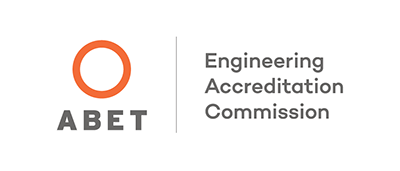UNDERGRADUATE ACCREDITATION
The Petrovietnam University Bachelor in Petroleum Engineering program is accredited by the Engineering Accreditation Commission of ABET (https://www.abet.org) under the General Criteria and the Program Criteria for Petroleum and Similarly Named Engineering Programs.

Program Objectives:
The Petroleum Engineering Program prepares students with knowledge and skills so that they can go to work immediately after graduation or continue their higher academic qualifications. We expect our graduates, after a certain time (from 3 to 5 years), can achieve the program educational objectives as follows. Graduates of the Petroleum Engineering program will:
- Be practical, employable and qualified production engineers, who are capable of designing, executing, producing, researching, innovation and management in specialized field.
- Continue their professional development and become professional managers for enterprises of Vietnam Oil and Gas Group, multinational companies, and/or become scientists for research institutes and universities.
- Keep their education up to date through self-instruction and other training to meet the challenges of the competitive, modern and dynamic workplace.
Program Outcomes:
Petroleum Engineering programs must demonstrate that their students attain the following outcomes:
- an ability to identify, formulate, and solve complex engineering problems by applying principles of engineering, science, and mathematics.
- an ability to apply engineering design to produce solutions that meet specified needs with consideration of public health, safety, and welfare, as well as global, cultural, social, environmental, and economic factors
- an ability to communicate effectively with a range of audiences
- an ability to recognize ethical and professional responsibilities in engineering situations and make informed judgments, which must consider the impact of engineering solutions in global, economic, environmental, and societal contexts
- an ability to function effectively on a team whose members together provide leadership, create a collaborative and inclusive environment, establish goals, plan tasks, and meet objectives
- an ability to develop and conduct appropriate experimentation, analyze and interpret data, and use engineering judgment to draw conclusions
- an ability to acquire and apply new knowledge as needed, using appropriate learning strategies
SPE Program Criteria
The program must demonstrate that graduates have the ability to apply:
- Mathematics through differential equations, probability and statistics, fluid mechanics, strength of materials, and thermodynamics to petroleum engineering problems;and competency in the:
- Design and analysis of well systems and procedures for drilling and completing wells;
- Characterization and evaluation of subsurface geological formation and their resources using geoscientific and engineering methods;
- Design and analysis of systems for producing, injecting, and handling fluids;
- Application of reservoir engineering principles and practices for optimizing resource development and management; and
- Use of project economics and resource valuation methods for design and decision making under conditions of risk and uncertainty.
Annual Student Enrollment and Graduation Data
PE Enrollment Data
| Academic Year | Enrollment Year | Degrees Awarded | ||||
| 1st | 2nd | 3rd | 4th | Bachelors | ||
| 2023-2024 | FT | 65* | 14 | 11 | 20 | |
| 2022-2023 | FT | 41* | 11 | 20 | 10 | 6 |
| 2021-2022 | FT | 48* | 21 | 9 | 19 | 10 |
| 2020-2021 | FT | 54* | 9 | 18 | 19 | 14 |
| 2019-2020 | FT | 58* | 17 | 20 | 15 | 11 |
* The total number of students of the 3 programs (Geological Engineering, Petroleum Engineeering, Chemical Engineering). After the first academic year, the students will choose their majors.
FT: full-time



